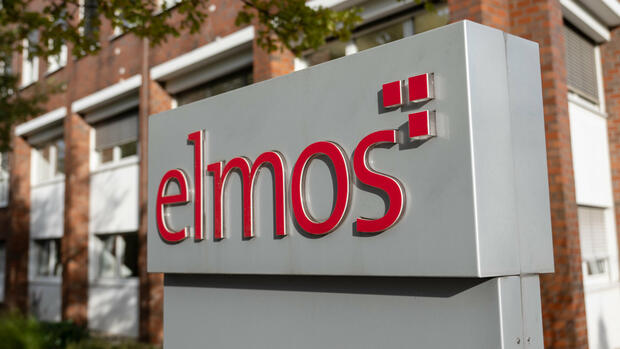The production of the semiconductor manufacturer in Dortmund has found a buyer.
(Photo: dpa)
Munich, Berlin The Dortmund chip manufacturer Elmos has found a new buyer for its semiconductor production: The US group Littelfuse will take over the production facility with its 225 employees for 93 million euros. This was announced by the listed company on Wednesday.
Originally, Elmos intended to sell the factory to a Swedish subsidiary of the Chinese company Sai Microelectronics for almost 85 million euros. The sale burst but last fall. The Federal Ministry of Economics prohibited the deal with reference to “a threat to public order and security in Germany”. Chinese companies should not have access to German technology.
The Handelsblatt had previously reported on the concerns of the Office for the Protection of the Constitution. Security officials warned that China is targeting certain industries to use as a political bargaining chip.
Elmos still needs approval
The federal government still has to approve the new buyer. The sale is expected to be completed by December 31, 2024, according to the Elmos announcement. Elmos has also signed a purchase agreement with Littelfuse that runs until 2029 for some of the wafers produced in Dortmund. The silicon disks on which semiconductors are produced are referred to as wafers.
Littelfuse comes from Chicago and produces electronic components with around 18,000 employees. In the first quarter of 2023, the publicly traded group had sales of $610 million and a profit of $88 million.
Elmos produces 90 percent of its chips for the automotive industry. The company belongs to the second row of chip companies and is significantly smaller than, for example, the Dax group Infineon, the world’s largest manufacturer of car chips from Munich.
Shortly before Christmas 2021, Elmos announced that it would be separating production from its headquarters in Dortmund. With the sale, Elmos wants to give up its own production and instead buy its chips from contract manufacturers and process them further. Elmos expects that it will no longer be able to fully utilize its own factory in the future. For buyers from the automotive industry, smaller structure sizes of the chips are necessary, i.e. semiconductors that are produced with more complex processes.
The investors celebrate the transaction
That’s why the federal government was initially scarcely worried about the takeover. The chip technology from Elmos is said to be so outdated that the Chinese have no knowledge of what would advance them and could thus bring any disadvantages to Germany. The production in Dortmund is also comparatively small. The German security authorities, on the other hand, argued that, from their point of view, the semiconductor market is not only about the outflow of know-how, but also about production capacities. Ultimately, the skeptics prevailed.
>> Read here: The fear of China when it comes to chip factory takeovers is absurd
However, when the ban was issued, the Ministry of Economics had already promised to help find future prospects for Elmos. According to government circles, the ministry officials are said to have subsequently supported Elmos in the search for investors.
The transaction was well received on the stock exchange. With an increase of almost four percent, Elmos was the biggest winner in the SDax on Wednesday morning.
More: “Do you want to actively discriminate against us?” – Chip manufacturer Nexperia complains about the federal government.
